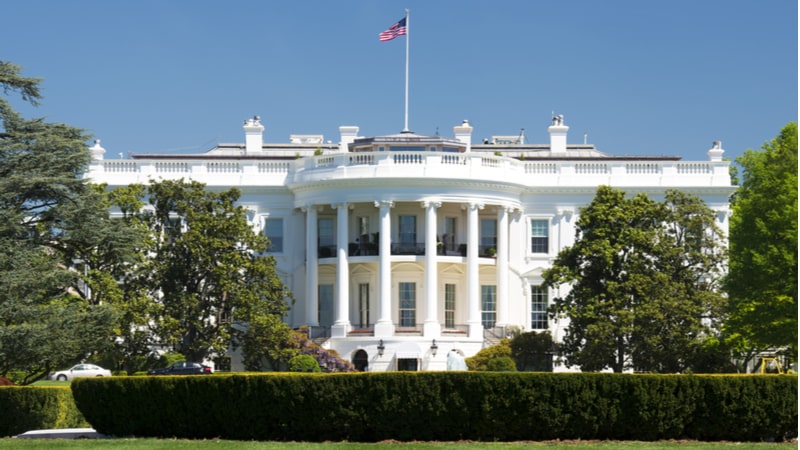
The Biden administration on July 26 published an implementation roadmap for its 2023 National Standards Strategy for Critical and Emerging Technology (USG NSSCET) that strongly endorses an industry-led approach to developing international standards for the development of emerging and critical technologies.
The White House’s release of the implementation roadmap follows a call last month from the National Institute of Standards and Technology (NIST) requesting feedback on the draft version of the USG NSSCET. The draft guidance sprung from the administration’s original policy release on international tech standards development issued in May 2023.
The implementation roadmap issued on Friday “sustains and reinforces the U.S. Government’s commitment to standards development led by the private sector and enhanced by partnerships with public institutions and calls for robust engagement in the standardization of critical and emerging technologies (CETs) to protect U.S. national and economic security,” the White House said.
In a February 2024 report, the White House Science and Technology Council defined critical and emerging technologies as “a subset of advanced technologies that are potentially significant to U.S. national security.”
Those technologies include, among others:
- Advanced computing;
- Advanced and Networked Sensing and Signature Management;
- Advanced Manufacturing;
- Artificial Intelligence;
- Data Privacy, Data Security, and Cybersecurity Technologies;
- Highly Automated, Autonomous, and Uncrewed Systems (UxS), and Robotics;
- Human-Machine Interfaces;
- Hypersonics;
- Integrated Communication and Networking Technologies;
- Positioning, Navigation, and Timing (PNT) Technologies;
- Quantum Information and Enabling Technologies;
- Semiconductors and Microelectronics; and
- Space Technologies and Systems.
The value of creating international standards for those kinds of technologies, the White House said, includes providing “industries and innovators with a common language that facilitates trade, simplifies transactions, accelerates innovation, and enables people to work across disciplines and borders toward common goals.”
The White House also pointed out that if the U.S. does not take a hand in international standards development, then other countries will.
“Recognizing the strategic value of CETs, our competitors abroad are seeking to influence international standards development to their own advantage, placing at risk leadership opportunities for U.S. innovators and industry and access to quality products and services that benefit all,” the White House said in announcing the implementation roadmap.
The roadmap is organized around numerous lines of effort for the government, “with an understanding that success will require extensive and sustained coordination with the U.S. private sector and like-minded allies,” the White House said.
Those lines of effort include, in the shorter-term, Federal government action to increase government “pre-standardization R&D and standards participation efforts,” evaluating current Federal CET standards grants and programs, and tracking and evaluating government technology cooperation agreements and international mechanisms for standards-related communication and cooperation.
Longer-term Federal government steps will include: increasing standards coordination between the government, the private sector and foreign governments; recognizing and incentivizing Federal agency engagement in standardization; providing funding for CET R&D and pre-standardization coordination; and engaging academia as a critical partner to the private sector in standards development efforts.
“The United States is committed to a private sector-led standards system that is inclusive, diverse, and draws on robust research and innovation,” the White House said. “Through clear actions and effective diplomacy, the Departments of Commerce and State, together with the Office of the United States Trade Representative, will continue to work with private sector leadership including the American National Standards Institute (ANSI) to engage international partners with an aim to promote this approach globally.”
